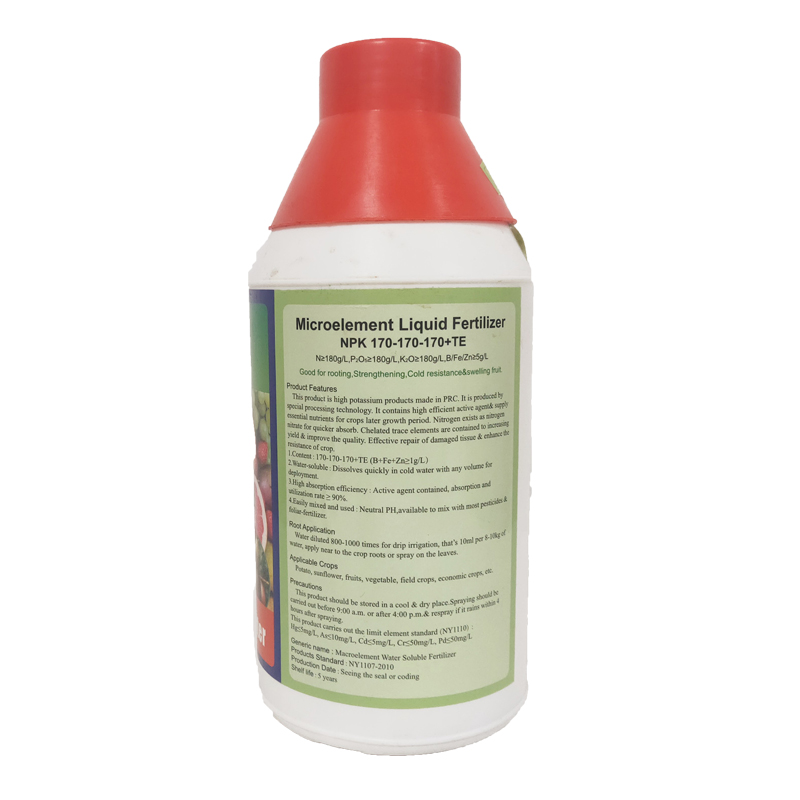
Dec . 26, 2024 15:40 Back to list
organic fertilizer for vegetables
The Benefits of Organic Fertilizer for Vegetables
In recent years, the demand for organic produce has soared, driven by an increasing awareness of the health benefits associated with organic farming practices. One of the key components of organic vegetable cultivation is the use of organic fertilizers. These fertilizers, derived from natural sources, play a pivotal role in enhancing soil fertility, promoting plant growth, and yielding vibrant, healthy vegetables.
Organic fertilizers are mainly composed of plant and animal matter, such as compost, manure, and other natural substances. Unlike synthetic fertilizers, which can sometimes lead to soil degradation and water pollution, organic fertilizers foster a more sustainable approach to agriculture. They work by enriching the soil's organic matter, improving its structure, and enhancing its ability to retain moisture and nutrients. This is particularly important for vegetable gardens, where soil health directly affects crop yield and quality.
One of the primary benefits of using organic fertilizer is its slow-release nutrient profile. Organic fertilizers provide a steady supply of nutrients over time, as opposed to synthetic fertilizers that often deliver a quick burst of nutrients. This slow-release nature prevents nutrient leaching and reduces the chances of chemical runoff into local waterways, which can lead to environmental issues. Consequently, using organic fertilizers not only nourishes the plants but also protects surrounding ecosystems.
Moreover, organic fertilizers enhance soil microbial activity. Healthy soil contains a diverse community of microorganisms that play a vital role in nutrient cycling and organic matter decomposition. When organic fertilizers are applied, they provide food for these beneficial microbes, promoting their growth and activity. The increased microbial activity further improves soil health, leading to better nutrient availability for vegetables. This biological enhancement can lead to more resilient plants that are better equipped to withstand pests, diseases, and environmental stressors.
organic fertilizer for vegetables

In addition to their positive impact on soil health, organic fertilizers contribute to the nutritional value of vegetables. Research indicates that vegetables grown with organic practices often contain higher levels of essential vitamins and minerals compared to their conventionally grown counterparts. For health-conscious consumers, this fact adds to the appeal of choosing organic vegetables. By supporting organic farming methods that utilize natural fertilizers, consumers are making a choice that not only benefits their health but also promotes sustainable agriculture.
When considering the use of organic fertilizers, it’s important for gardeners and farmers to tailor their approach to the specific needs of their crops. Different vegetables have varied nutrient requirements, and understanding soil composition is crucial to optimizing fertilizer application. Regular soil testing can provide valuable insights into nutrient levels and deficiencies, enabling growers to make informed decisions about the types and amounts of organic fertilizers to use.
Another advantage of organic fertilizers is their contribution to food safety. Since these fertilizers are derived from natural materials and contain no synthetic chemicals, vegetables grown with organic fertilizers are less likely to carry harmful residues. This is especially significant for consumers who are vigilant about pesticide exposure and food safety.
In conclusion, the use of organic fertilizers in vegetable cultivation offers numerous benefits, ranging from improved soil health and nutrient retention to increased vegetable quality and safety. As awareness of these advantages grows, more gardeners and farmers are likely to adopt organic practices, supporting not only their health but also the health of the planet. By choosing organic fertilizers, we can cultivate a sustainable future filled with abundant, nutritious vegetables while preserving the ecological balance of our environment.
-
Premium 10 10 10 Fertilizer Organic for Balanced Plant Growth
NewsJul.29,2025
-
Premium 10 10 10 Fertilizer Organic for Balanced Plant Growth
NewsJul.29,2025
-
50 Pound Bags of 13-13-13 Fertilizer for All Plants – Bulk & Organic Options
NewsJul.28,2025
-
High-Efficiency 15-30-15 Granular Fertilizer for Healthy Crops
NewsJul.28,2025
-
15-30-15 Granular Fertilizer for Optimal Crop & Lawn Growth
NewsJul.27,2025
-
Premium 10 10 10 Water Soluble Fertilizer for Fast Plant Growth
NewsJul.26,2025
